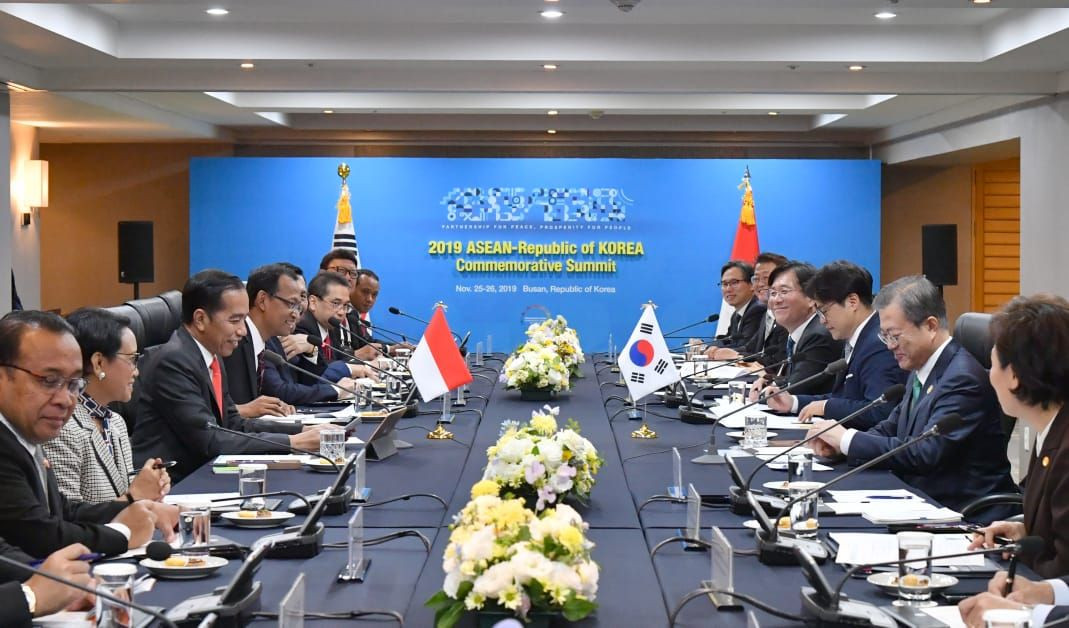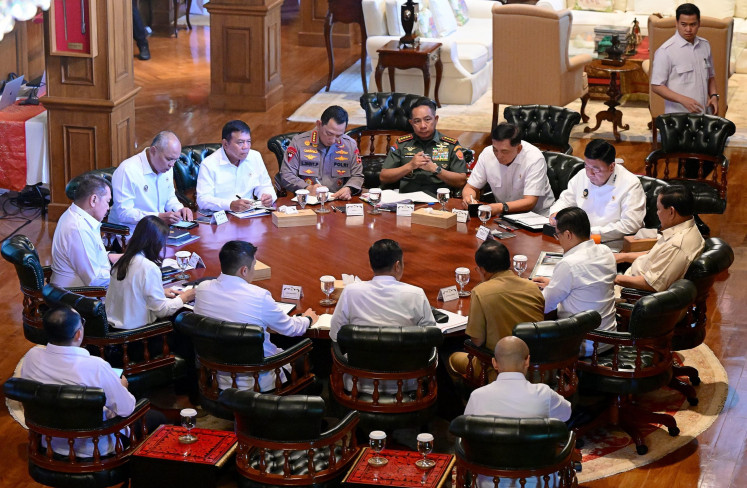Popular Reads
Top Results
Can't find what you're looking for?
View all search resultsPopular Reads
Top Results
Can't find what you're looking for?
View all search resultsASEAN will remain important to Korea under new leader
President-elect Yoon Suk-yeol has acknowledged the need to continue engagement with ASEAN, especially amid the intensifying United States-China competition.
Change text size
Gift Premium Articles
to Anyone
S
outh Korea has elected Yoon Suk-yeol of the opposition People’s Power Party (PPP) to become the nation’s next president. The election was a close call, with only a 0.8 percentage point margin between the conservatives and progressives.
Domestically, the election has highlighted the divided electorate since the start. The new government will commence its term in less than two months, yet the president-elect has been sending a strong signal that his administration will take the opposite trajectory from the administration of outgoing President Moon Jae-in.
Under Yoon’s rule, it is quite likely that South Korea’s foreign policy will change. His administration will focus on strengthening ties with the United States based on the bilateral alliance system and reestablishing relations with Japan, as the two close neighbors are major US allies in Northeast Asia.
The conservative preference for the US will shift South Korea’s approaches in dealing with the rivalry between China and the US in Asia. During his presidency, Moon introduced the New Southern Policy (NSP), which aimed to expand the room for South Korea to maneuver within the great power struggle by “elevating” its relationship with ASEAN member states.
Based on three pillars – people, prosperity and peace – the NSP provided scope for comprehensive engagement, signifying the increasing importance of ASEAN. Noting the divergent attitude Yoon has in comparison to his predecessor, will South Korea shift away from the foreign policy engagement toward its southern neighbor?
During a campaign rally last November, when asked whether he would continue the NSP initiative, Yoon replied, “Cooperation with ASAN is very important. Although it is not known exactly how effective the current NSP has been and whether it has succeeded to earn ASEAN’s trust in South Korea, I will do my best to build a regional community in which capitals and manpower can freely move around,” as quoted by South Korean news outlet MBN.
Yoon acknowledged the need to continue engagement with ASEAN, especially amid the intensifying US-China competition. But at the same time, he appears to be skeptical about the effectiveness of Moon’s signature foreign policy program.
However, one should not jump to the conclusion that Yoon’s foreign policy will divert from cooperation with ASEAN in comparison to Moon’s legacy. Yoon has asserted his interest in increasing South Korea’s Official Development Assistance (ODA), which is in line with his predecessor’s pledge to double its ODA to six ASEAN countries to 180.4 billion won (US$151 million) in 2023, up from 80 billion won in 2019, as reported by Yonhap News.
Furthermore, the momentum of the South Korea-ASEAN economic partnership will make it hard for Yoon to change course as demands from the business sector arise. Major projects from Korean companies have poured millions of dollars’ worth of investment into ASEAN member states.
In Vietnam, for example, Samsung electronics contributed some 20 percent of the country’s total exports in 2018. Subsequently LG and Hyosung, a textile firm, respectively, plan to invest $1.5 billion in the home appliance manufacturing sector and $6 billion in chemicals and heavy industry in Vietnam.
SK, the Korean telecommunications giant, has launched bases in Malaysia and has banded with Singapore’s Grab, the region’s largest ride-hailing unicorn. On messenger services, Naver, with the Line brand, has penetrated the Thai and Indonesian markets.
With the signing of the Regional Comprehensive Economic Partnership in 2020, a major regional economic framework will boost economic exchanges between Korea and ASEAN.
How will the changing of the guard impact South Korea’s relationship with Indonesia? The two countries share similar experiences. Both gained independence in 1945 and experienced military-democratic struggles within their domestic politics. Despite different economic achievements, both countries have been heralded as rising middle powers in Asia.
Diplomatic relations between them began in 1973. Yet their relationship only strengthened with the signing of the Republic of Indonesia-Republic of Korea Joint Vision Statement for Co-Prosperity and Peace in 2017. It has elevated the bilateral relations to a “special strategic partnership” along with the NSP initiative.
Under the Yoon administration, such a trend will continue. Business interests will be sustained if not expand further.
Economic relations will likely top the new South Korean government’s agenda in Indonesia. The country’s investment now ranks seventh in Indonesia, amounting to $683 million in 2020, according to the Investment Coordinating Board (BKPM). Tariff reduction through the signing of the Comprehensive Economic Partnership Agreement (CEPA) in 2020 will give a boost to bilateral trade.
Last year Hyundai Motor and LG Energy Solution invested $1.1 billion in electric vehicle battery production in Karawang New Industry City. In addition to the $1.55 billion investment in an EV plant in Deltamas Industrial Complex, Bekasi, Indonesia is set to host South Korea's first EV assembly plant and EV hub in Southeast Asia.
In a nutshell, while there will be changes in certain details, South Korea will stay engaged with its ASEAN counterparts. After all, it was the business sector that took the initiative to expand outreach to ASEAN, including the Indonesian market.
The difference between Yoon and his predecessor when it comes to engagement with ASEAN will rest in priorities, the extent and degree of which will only be clear after his inauguration in May.
***
Ratih Indraswari is a faculty member of the International Relations Department at Parahyangan Catholic University and a PhD candidate in the Department of Political Science and International Relations at Ewha Womens’ University in South Korea, where Joo Eunwoo is pursuing a doctorate.










